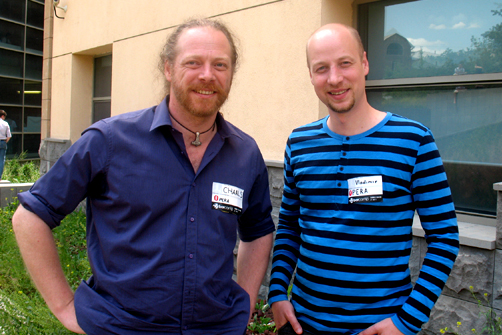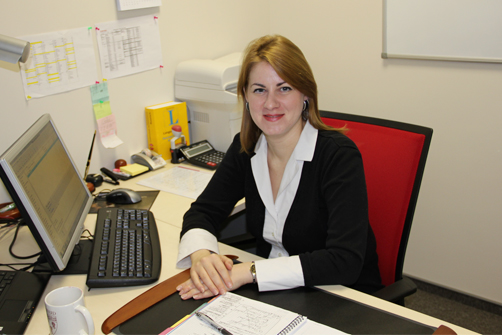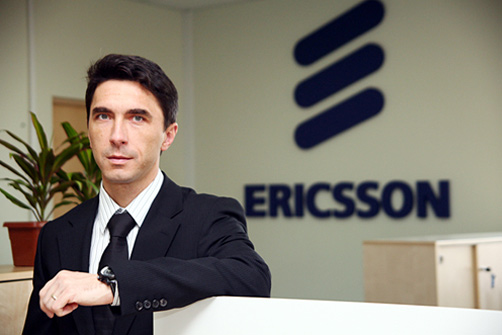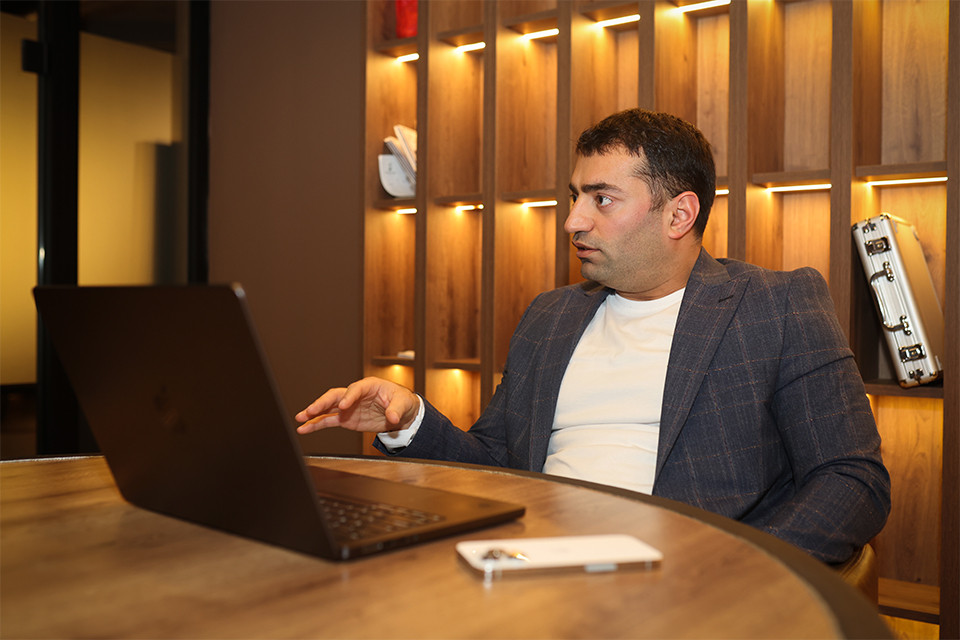-

Charles McCathie Nevile and Vladimir Isaev
22:11 | 12.06.11 | Interviews | exclusive 11755
Opera Software: we will have a customer in Armenia soon
Opera internet browsers have become widely popular in Armenia over the past few years already. Being preinstalled in the majority of cell phones, sold in the country, Opera Mini occupies over two thirds of the mobile browser market in Armenia, at that the company has no single contract with local suppliers.
Opera Software Chief Standards Officer Charles McCathie Nevile and Opera Communication Manager in CIS Vladimir Isaev spoke of Opera Software business peculiarities and of the company’s plans in Armenia in an interview to Mediamax.
- The average world market share of Opera and Opera Mobile in April, 2011, made 2.14%, and the share of Opera Mini – 1.11%, however in Russia, Armenia and other CIS countries, the share of Opera is far higher than the average in the world. In particular, in April, 2011, Opera, together with Opera Mini, occupied the first line as to popularity in Russia (36.1% of the market). How does the company manage to preserve such high positions in CIS?
Charles McCathie Nevile: The reason for such state of affairs is not that much the success in CIS market, as the shortcomings in all others. The fact is that initially Opera was a paid browser, and users in Europe and the USA looked for free alternatives to it. In the above-mentioned markets, where the majority of software had traditionally been paid, users’ priority was mainly to get it cheaper or for free. Concerning CIS, here, as you know, everything can be found free of charge and people were choosing what was really more preferable for them, and the functional advantages of Opera played their role. We have never gained serious incomes from CIS markets, but we have gained a community of users instead.
Vladimir Isaev: While Opera was being created, internet was already a part of life for numerous users in developed countries. The same cannot be said about CIS, where internet and personal computers penetrated later. Russia, Ukraine, Armenia and other countries of the region still experience problems with broadband internet access. Opera’s ability to save traffic is still the basic argument for users in CIS. In markets of countries, where internet and computers came with a certain delay and the majority of people did not know how to use them, some circle of experts was formed first, and that circle played an important role in popularizing internet. They were the ones, who understood Opera’s advantages in conditions of underdeveloped network infrastructures, and started popularizing it. In Russia and CIS countries, as opposed to the USA and Europe, we never held marketing campaigns.
- It is notable that Opera, often becoming an innovator in expanding browsers’ functions and for the first time introducing options, such as “speed dial” panel or “mouse gestures”, occupies quite a modest share of the global market. Why?
Charles McCathie Nevile: A brief answer to your question is marketing. Opera’s marketing budget cannot be compared with Microsoft, Google and Apple. But even without strong marketing the number of our users constantly increases and the fact that we preserve the market share with constant increase of internet users evidences the fact. We are fully pleased with today’s state of affairs, since the company has good profit, which exceeds the pre-crisis indices.
And concerning technologies, indeed, Opera was the first in many aspects and the focus of the company is exactly on innovations. History knows many cases when companies, gaining a dominating share in the market, stopped experimenting and putting forward innovations.
Vladimir Isaev: We should take into account the fact that about 750 people work in Opera Software Company and 60% of them are developers. This is why we lead as to technologies, but we yield as to advertising. But I believe that this is not a significant shortcoming for a high tech company. Opera Software is a public company, the shares of which are quoted on Norway Stock Exchange and two weeks ago the prices for our shares reached their peak for the past 3 years. We had a quite successful fiscal year in 2010 and the first quarter of 2011.
- What are such post-crisis achievements conditioned by?
Charles McCathie Nevile: There was a shift in our business model. Opera has three main sources of income. The first one is software development, the second is the browser built-in unit with a search engine for various systems, which pay for traffic; and the third (the most recent) source is cooperation with infrastructural companies, mainly with network operators basing on the principle of division of incomes.
It is profitable for network operators, which sell their service and devices, to cooperate with us, since Opera browsers save their traffic while adding cost to their infrastructure. We think the current business model is stable, if we take into account the huge number of network operators. And this is reflected in the growth of the company’s shares.
- Are there negotiations with Armenian mobile connection operators as to pre-installation of Opera in their products?
Vladimir Isaev: Yes, now we are negotiating and I believe that quite soon we will announce a deal. Unfortunately, I cannot disclose its details, but I can state with confidence that we will have a customer in Armenia soon.
- What is the share of Opera browsers in Armenia?
Vladimir Isaev: We are the absolute leader as to mobile browsers. Opera Mini occupies 74% of the Armenian market. The share of Desktop versions of Opera in Armenia is not that high and makes about 10%. So far, we have not been paying much attention to the Armenian market, but the number of our users here increases and I think we will launch something special here in the nearest future.









